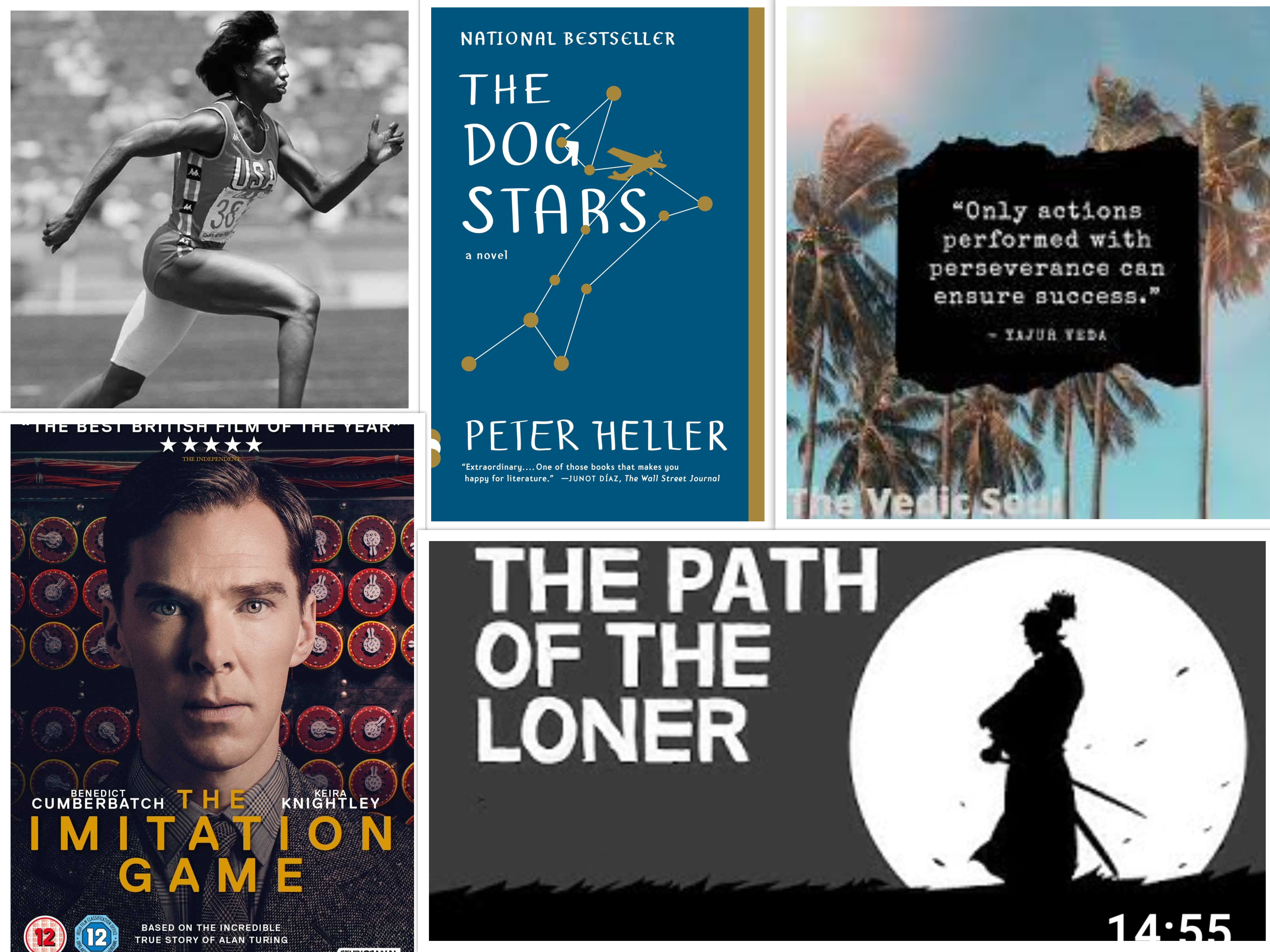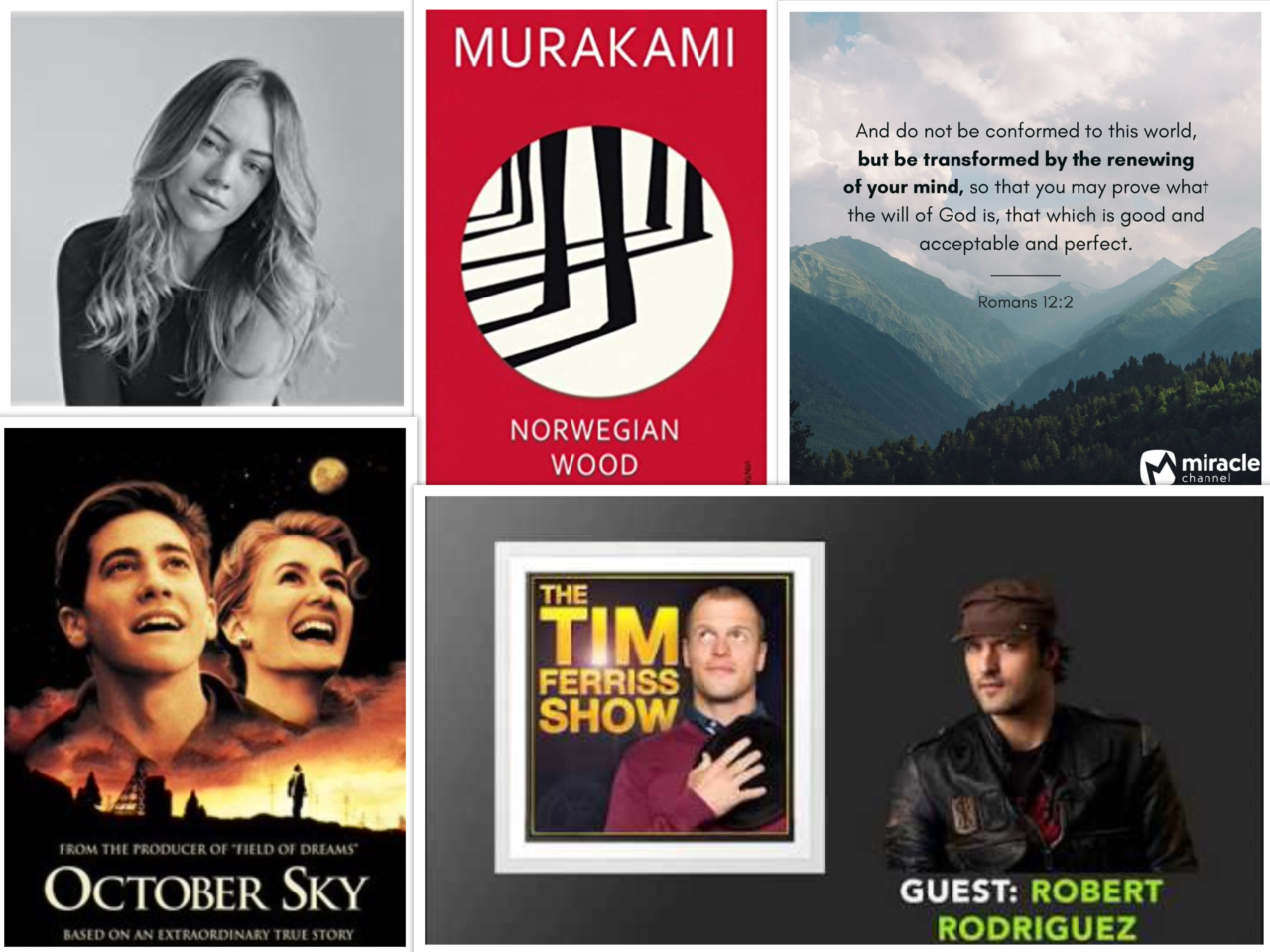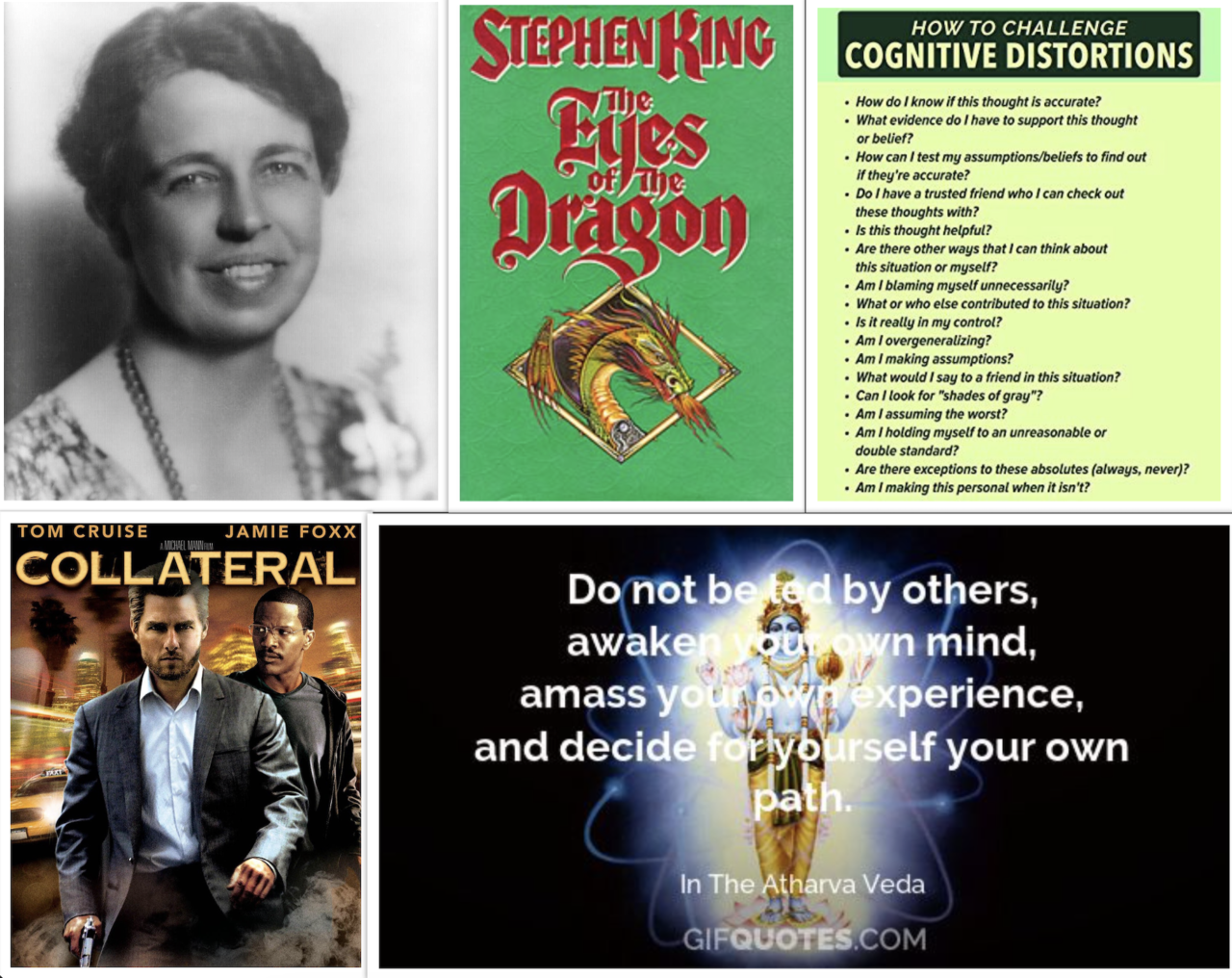Sunday Supplement #20 (September 26th, 2021)
Below is another Sunday Supplement with a quote worth sharing, a book worth reading, a movie worth watching, brainfood worth consuming, and a spiritual passage worth pondering.
I hope you take something away from these recommendations that enriches your week ahead!
Quote of the Week:
“If I stop to kick every barking dog, I am not going to get where I’m going.”
– Jackie Joyner-Kersee
Book of the Week:
The Dog Stars – Peter Heller
A few movies and books were highlighted over quarantine, like Contagion and Stephen King’s The Stand. While both discuss relevant issues, a story that deals with a similar situation in a different way is Peter Heller’s The Dog Stars.
While the above stories focus on the downfall of civilization, this novel picks up long after a flu pandemic wipes out most of the population. It follows the narrative of Hig, who continues his existence in semi-isolation in that hangar of a small abandoned airport. He lives with his dog, Jasper, and a recluse military man, Bangley, while they attempt to survive and find purpose.
The small cast of characters allows for a deeper exploration of what it means to be truly alone. Hig meets additional characters along the way, and each brings something unique to the narrative that makes a fascinating read.
Thankfully, the novel isn’t a downer. The book takes a unique situation and fully explores it from a point of view that isn’t all about chaos. Its narrative provides an introspective read that is well worth checking out. The Dog Stars was nominated for the Arthur C. Clarke Award and the Andrew Carnegie Medal in 2013. It might not be the most famous novel about a pandemic, but it might be one most deserving of a read.
Movie of the Week:
During World War II, mathematical genius Alan Turing attempts to crack the German Enigma code with his fellow mathematicians. Turing faces adversity in the workplace and is ostracized for his antisocial behavior and his private life.
A ranked compilation of unproduced scripts floating around Hollywood is released. “The Black List” is famous in the movie industry, and many brilliant screenplays have topped it over the years. The Social Network and Juno are some of the highlights from past years. Leonardo DiCaprio and Matt Damon were linked with the role of Alan Turing at various stages, but Benedict Cumberbatch eventually landed the leading role.
The film has a well-rounded cast supporting Cumberbatch with Keira Knightley, Charles Dance, Mark Strong, and Matthew Goode all giving commanding performances. The Imitation Game received eight Academy Award nominations in a tough year and only won one. It arguably should have won more, but Best Writing – Adapted Screenplay for Graham Moore was the only Oscar win.
The Imitation Game has an intricate story that encompasses many different themes to help flesh out the plot. The personal struggles of Turning and Knightley’s Joan Clarke are central to the film and give it an extra dimension of depth that shouldn’t be overlooked. It is a movie worth seeing and one that warrants more than one watch for film buffs.
Brainfood of the Week:
Miyamoto Musashi – The Path of the Loner — video by Einzelgänger
Einzelgänger is a YouTube channel that creates videos exploring different people and ideas of history with the aim of making content that inspires, resonates, and entertains. The tagline of the channel is, “In search of…”
In this video, Einzelgänger recounts the story of Miyamoto Musashi and the legacy he left behind. Musashi was born in the 16th century and embarked on a warrior’s pilgrimage, “musha shugyō,” when he was fifteen. He traveled independently, practicing his sword skills while engaging in a series of duels to the death. Once Musashi gained Ronin status, he faced his most challenging opponent Sasaki Kojiro and won. He then renounced lethal duels and later retired and used his time to pass on his wisdom.
Musashi wrote about the path of the warrior— the samurai way of discipline, focus, restraint, and honor. He compiled 21 principles on how a warrior should live in his work Dokkōdō.
After giving a brief summary of Musashi’s life, the video explores Musashi’s Dokkōdō and its application to the modern-day. There are many lessons about honor, focus, and society that are well worth the look.
Closing Spiritual Passage:
“Only actions with perseverance can ensure success.”
– Yajur Veda
There are four sections of the Hindu Vedas, and they have many verses and passages worth checking out. The one above, from the Yajur Veda, discusses perseverance and its rewards. I always keep an eye out for passages that jump out to me or those that I come across that remind me to keep pursuing my interests and goals. I smile when synchronicities occur right when I need a sign, and I believe that the universe provides these moments when you most need them.
It can be a challenge to pursue your passion or keep on the path towards your goals, but I believe that perseverance has its rewards. When I encounter difficulties or setbacks, I try to be kind to myself and remind myself that hard work pays off, even if it’s in ways I didn’t expect. If you genuinely believe that what you are working on has meaning for you, keep going for it and don’t give up.
Take a moment to appreciate your hard work, and have a blessed week ahead!
Comments closed

